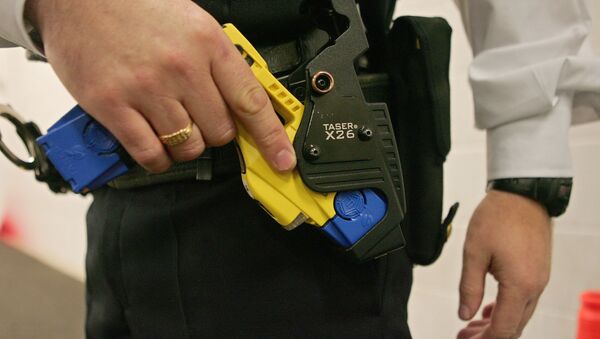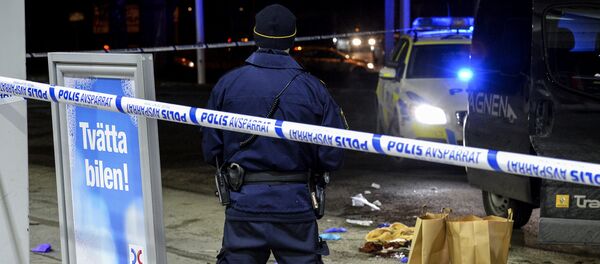During the two-year trial period, beginning in 2018, 70 shock weapons will be tested in five police precincts, as well as the National Task Force. One particular hope is that the electric shock weapon will decrease the necessity of using firearms.
Meanwhile, hundreds of police officers will be trained to use shock weapons in service. According to Patrik Munter, who works to train police in Vällingby, Stockholm, the use of electric shock weapons will allow police to act faster under pressure and in critical situations, Swedish Radio reported.
The weapon shoots out two arrows that stick to the body, whereupon an electric discharge is transmitted that causes convulsions, which ultimately leads to the collapse of the aggressor.
"The biggest risk actually involves falling injuries, that is when the affected person falls badly and sustains injuries. Other medical injuries are quite small actually. During the course, staff will be trained on how to use it and under what circumstances, in order not to cause harm unless absolutely necessary," Per Värdig said.
Johan Svanfeldt, a district police in Vällingby, Stockholm, with 26 years of police service behind him, was one of the officers chosen for the trial. By his own admission, he is looking forward to testing the new electric shock weapon.
"In terms of experience, I've never had to use a gun, but on a few occasions I have had to use both pepper spray and truncheon. The step between pepper spray and a gun seems too large to me, so the electric shock weapon comes as a convenient intermediate that comes without causing too much harm to individuals," Johan Svanfeldt said.
The police are one of the largest government agencies in Sweden, with about 28,000 employees, of which police officers constitute approximately 75 percent.
The standard equipment for Swedish police officers on patrol or guard duty includes expandable batons and pepper spray as well as a handgun (usually a SIG Sauer of various models), with a single round to reduce the risk of operator error or accidental discharge. Officers under special assignments may additionally be additionally assigned the Heckler & Koch submachine gun.
The police's right to use force, as part of the so-called "monopoly on violence", has been a hot topic for debate in Sweden, since it is difficult to set limits to justified and unjustified violence. The police are known to shoot against people an average 20 times a year, with the number of police-related deaths slowly increasing.
Finner inga ord för min tacksamhet. Tack polis, Säpo, räddningstjänst, sjukhuspersonal & civila. Ni gör Sverige tryggt, ni är våra hjältar. pic.twitter.com/dfOEhfh1fg
— Rosaline Marbinah (@RMarbinah) April 10, 2017



